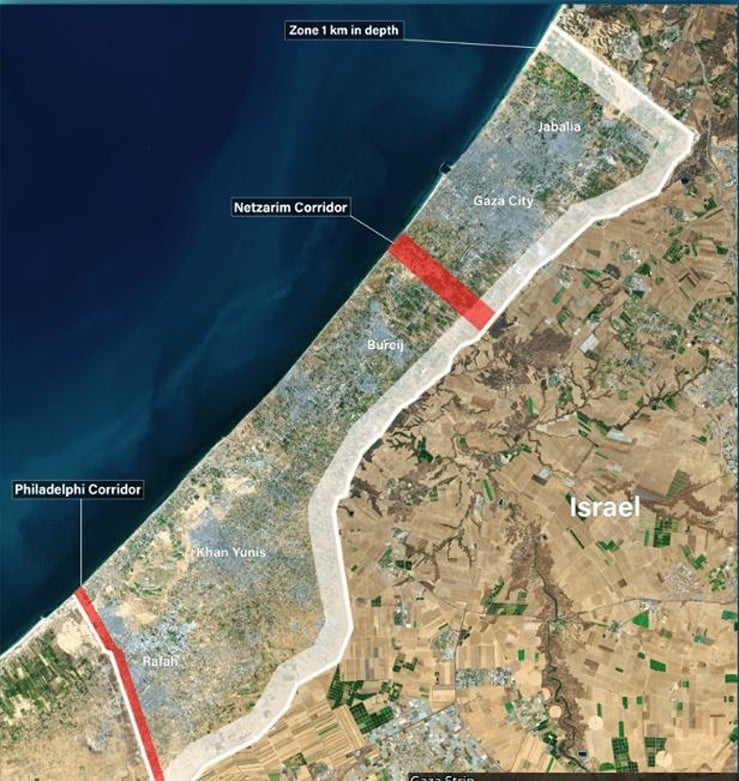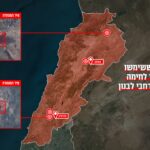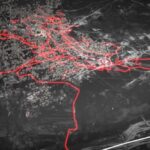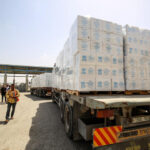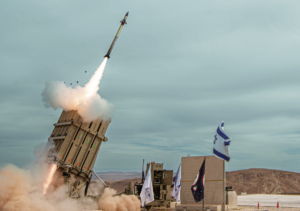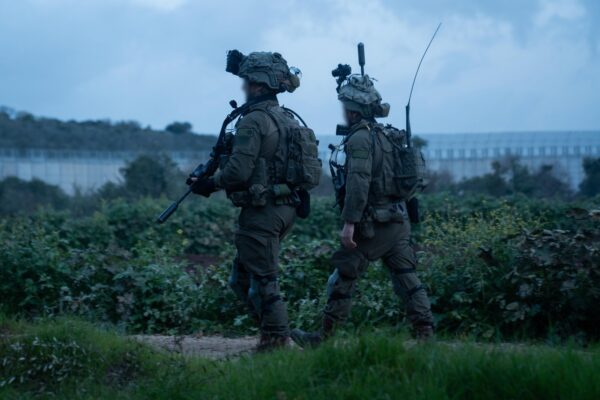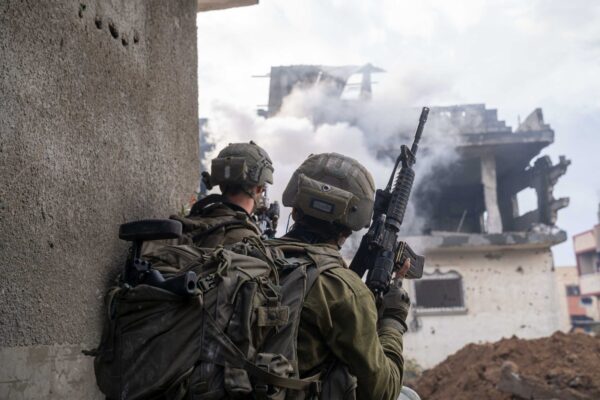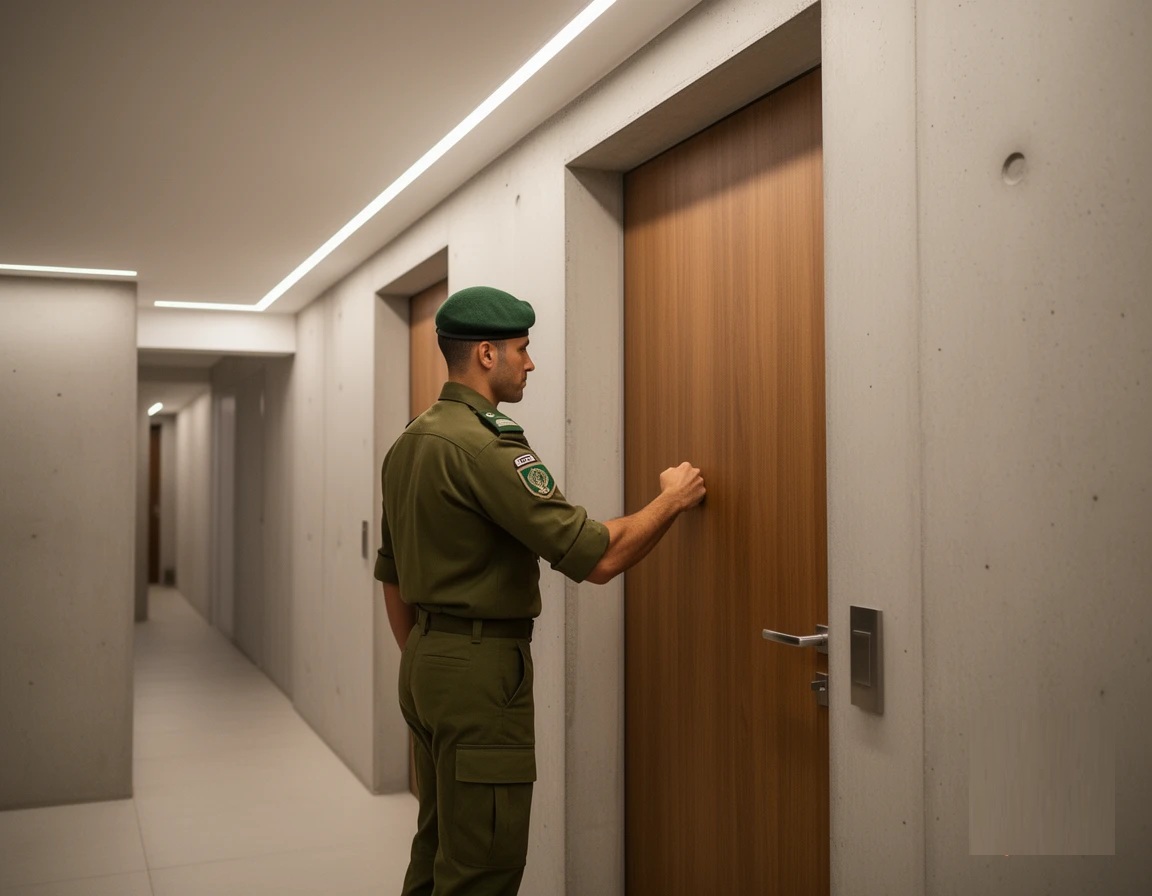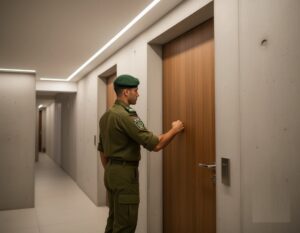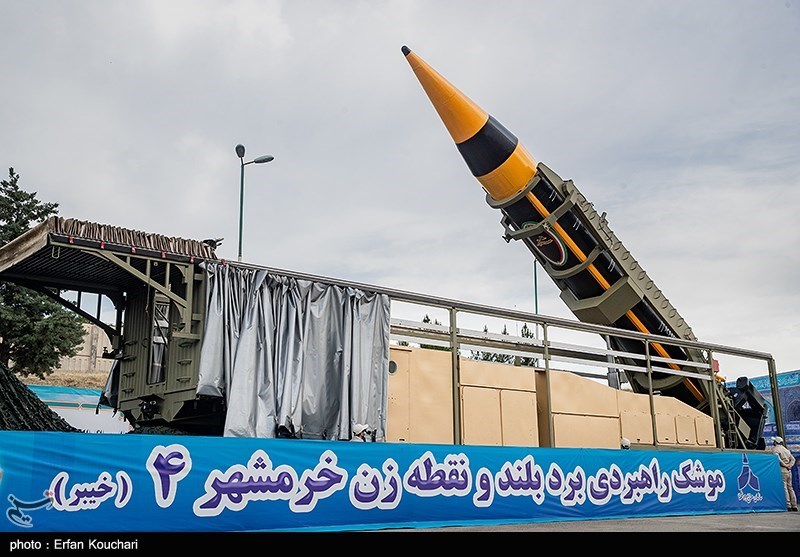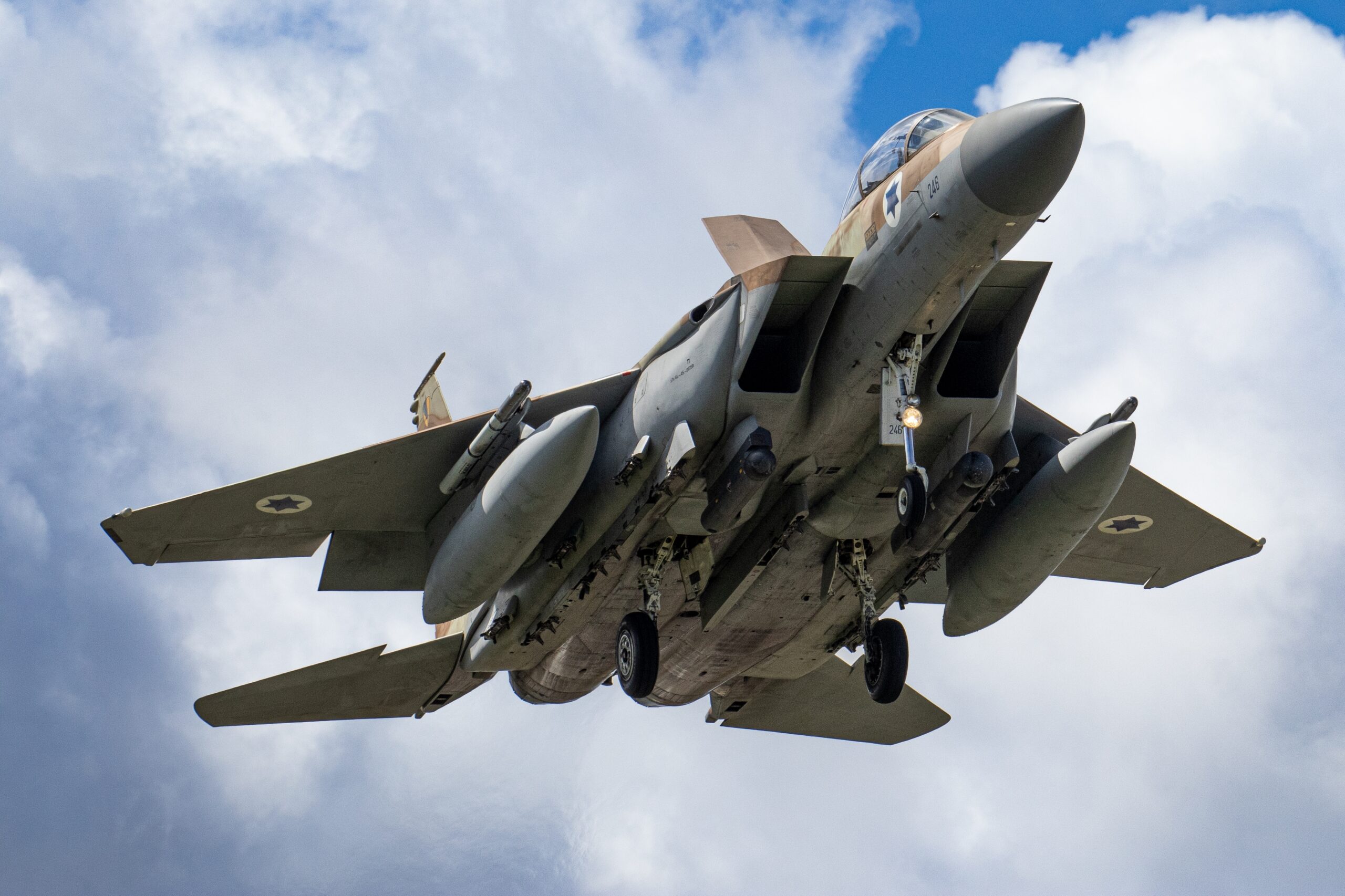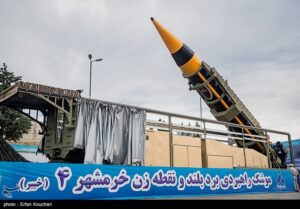Two military bases and a north-south buffer strip have joined the Netzarim and Philadelphi roads over the last several months.
By The IDF Club
The IDF zones that the army’s engineers have created within the Gaza Strip over the last year show that it’s serious about maintaining security control of the enemy territory for at least the medium-term, the Swiss Neue Zürcher Zeitung (NZZ) reported Friday.
By examining satellite imagery, the daily drew a clear picture of the new roads and infrastructure Israel has built in order to help the army’s efforts against the Hamas terrorists, as well as ensure security for Israeli citizens after the war is over.
Only a few weeks into the ground incursion into Gaza, which began in late October, 2023, troops started blowing up the buildings within a kilometer of the border to create a buffer zone for the kibbutzim and moshavim whose fields and home came within meters sometimes of the original fence.
By now, reported NZZ, approximately 90% of a north-south, kilometer-wide strip has been razed to the ground.
The Philadelphi Corridor on the Egyptian-Gazan border that had been the main smuggling route for Hamas weaponry, both over and under the ground, has been turned into a constantly patrolled, two-lane, paved road, enabling the IDF to shut down this “oxygen pipeline,” as Prime Minister Benjamin Netanyahu has dubbed it.
The biggest project has been the Netzarim Corridor, which cuts completely through the Strip about a third of the way down from its northern tip, through the outer parts of Gaza City.
The seven-kilometer-long road is wide, well-paved, and protected by earthen embankments in certain sections on either side. There are also watchtowers and at least two army bases dotting its flanks.
Buildings have been steadily demolished all around the road to a form a secure zone five to six kilometers wide.
The corridor started as the answer to a tactical need but is now “a strategic element,” Mitvim think-tank president Nimrod Goren told the paper.
“It also serves to divide the territory, to control the movement of the Palestinian population, to enable ongoing action against Hamas infrastructure and to show that Israel will not be leaving any time soon.”
This differs, for example, from several short access roads from Israeli territory, mostly to heavily populated areas like Gaza City, Khan Younis and Rafah, that have also been constructed.
Security experts NZZ interviewed said these were likely only tactical in nature, to ease army operations, and would not be maintained long-term.
Despite its importance to Israeli security, even the well-built southern road may not become a permanent fixture, according to Andreas Krieg, a senior lecturer at the School of Security Studies in King’s College London.
“Given the international significance of the Philadelphia corridor – where the interests of Israel, Egypt and the U.S. converge – this issue is likely to be resolved through negotiations,” he told NZZ.
The Biden administration has maintained that Israel cannot remain as an occupying power in Gaza after Hamas has been destroyed, and that no land could be subtracted from the Palestinians as a result of the war.
Netanyahu has said Israel would not reoccupy Gaza, but that no matter who runs the coastal entity in the future – something far from being settled as yet – Israel would have to retain “security responsibility” there so that the residents of the south can live there safely again.
His national-religious coalition partners are of a different opinion, saying that Israel should resettle areas evacuated in the 2005 unilateral Disengagement, as they believe this is the only way to successfully maintain Israel’s security in the long term.
On Thursday, Construction and Housing Minister Yitzhak Goldknopf of the ultra-Orthodox United Torah Judaism party joined them, saying that “Jewish settlement here is the answer to the terrible [Oct. 7] massacre and to the International Criminal Court in The Hague.”
Some 53% of Jewish Israelis support the reestablishment of Israeli communities in the Gaza Strip, according to the “Peace Index” survey released by Tel Aviv University in January.


